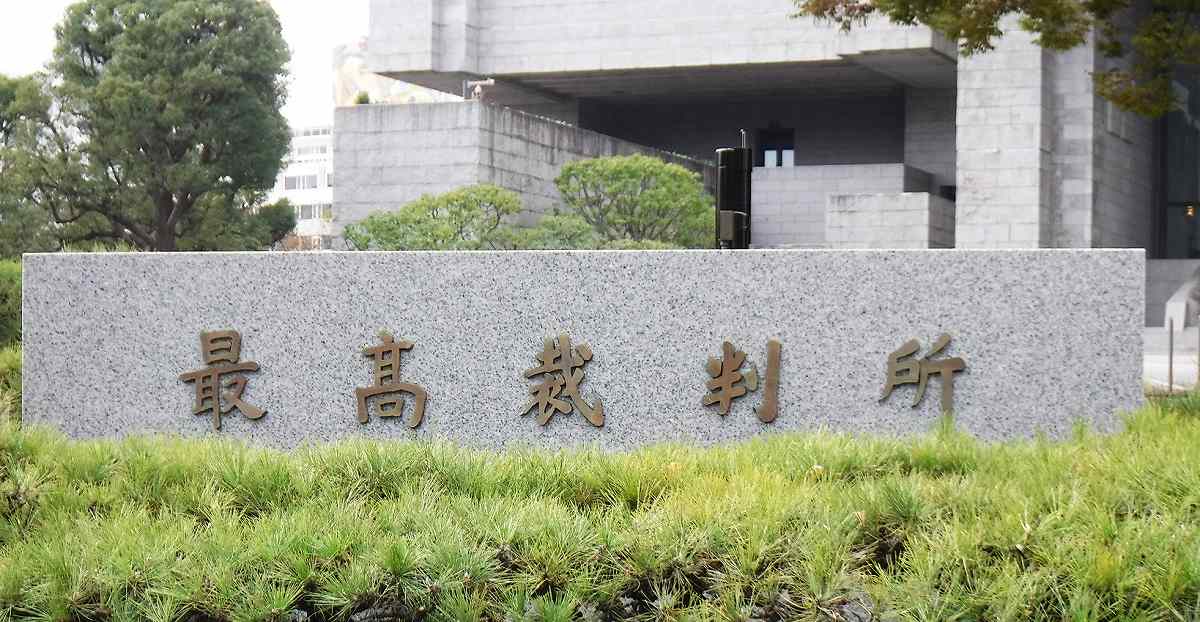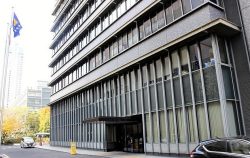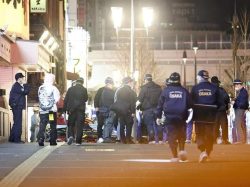Judge Under Investigation Over Suspicions of Insider Trading During Temporary Assignment to Financial Services Agency

The Supreme Court
16:02 JST, October 20, 2024
A judge who was temporarily assigned to the Financial Services Agency is being investigated on suspicion of insider trading conducted with information obtained through his duties, it has been learned.
The Securities and Exchange Surveillance Commission (SESC) is conducting the investigation with an eye to filing a criminal complaint with the Toyo District Public Prosecutors Office, according to sources.
The judge, in his 30s, was in charge of duties such as examining documents submitted by companies planning tender offers as an assistant chief of the Corporate Accounting and Disclosure Division of the agency’s Policy and Markets Bureau, the sources said. He is suspected of violating the Financial Instruments and Exchange Law by having purchased or sold shares of such companies in his own name this year, based on insider information that he obtained in the course of his duties.
The securities watchdog learned about the judge’s suspicious transactions and began a mandatory probe into the parties involved this autumn. Authorities are currently analyzing the status of the transactions and other matters. In principle, the FSA prohibits all its employees from trading in the stocks of companies with which they deal during official duties.
The Supreme Court assigns younger judges with less than 10 years’ service to administrative government bodies to allow them to gain various types of experience. In addition to the FSA, the entities to which such judges are temporarily assigned include the Internal Affairs and Communications Ministry, the Foreign Ministry and the Health, Labor and Welfare Ministry.
After about two years working in administrative affairs, they return to judicial services. The judge in question was seconded to the FSA under this scheme.
Under the law, parties who have access to undisclosed information on important matters, such as tender offers, mergers and buyouts involving listed companies, are prohibited during their duties from stock trading prior to an official announcement of such information.
This ban also applies to public employees who have legal authority over a company that conducts transactions such as a tender offer. If public employees conduct trading based on undisclosed information obtained through their duties, they face an administrative monetary penalty, and could also face criminal punishment of up to five years in prison or a fine of up to ¥5 million.
Multiple transactions alleged
Shortly after being assigned to the FSA in April this year, the judge is suspected of conducting unauthorized stock trades multiple times a month based on undisclosed information about tender offers scrutinized by the Kanto Local Finance Bureau, according to the sources.
The SESC suspects that the judge earned profits of at least several hundred thousand yen through these transactions.
The bureau handles about 10 tender offers per month. Companies planning a takeover bid submit documents to the bureau with such information as the planned date of the tender offer and the price, period and other terms of the offer. The judge had obtained such information in his capacity of providing guidance and advice to the bureau, the sources said.
When a company announces a tender offer, the company’s stock price often fluctuates. The judge is believed to have purchased shares in multiple companies every month before the announcement of their tender offers and sold the shares after the stock prices rose to gain profits. Such transactions continued until August when the watchdog started looking into his actions.
In response to the probe, the judge was removed from the corporate disclosure division and is now assigned to the agency’s Strategy Development and Management Bureau.
Top Articles in Society
-

Man Infected with Measles Reportedly Dined at Restaurant in Tokyo Station
-

Man Infected with Measles May Have Come in Contact with Many People in Tokyo, Went to Store, Restaurant Around When Symptoms Emerged
-

Woman with Measles Visited Hospital in Tokyo Multiple Times Before Being Diagnosed with Disease
-

Australian Woman Dies After Mishap on Ski Lift in Nagano Prefecture
-

Foreign Snowboarder in Serious Condition After Hanging in Midair from Chairlift in Nagano Prefecture
JN ACCESS RANKING
-

Japan PM Takaichi’s Cabinet Resigns en Masse
-

Japan Institute to Use Domestic Commercial Optical Lattice Clock to Set Japan Standard Time
-

Israeli Ambassador to Japan Speaks about Japan’s Role in the Reconstruction of Gaza
-

Man Infected with Measles Reportedly Dined at Restaurant in Tokyo Station
-

Videos Plagiarized, Reposted with False Subtitles Claiming ‘Ryukyu Belongs to China’; Anti-China False Information Also Posted in Japan





















